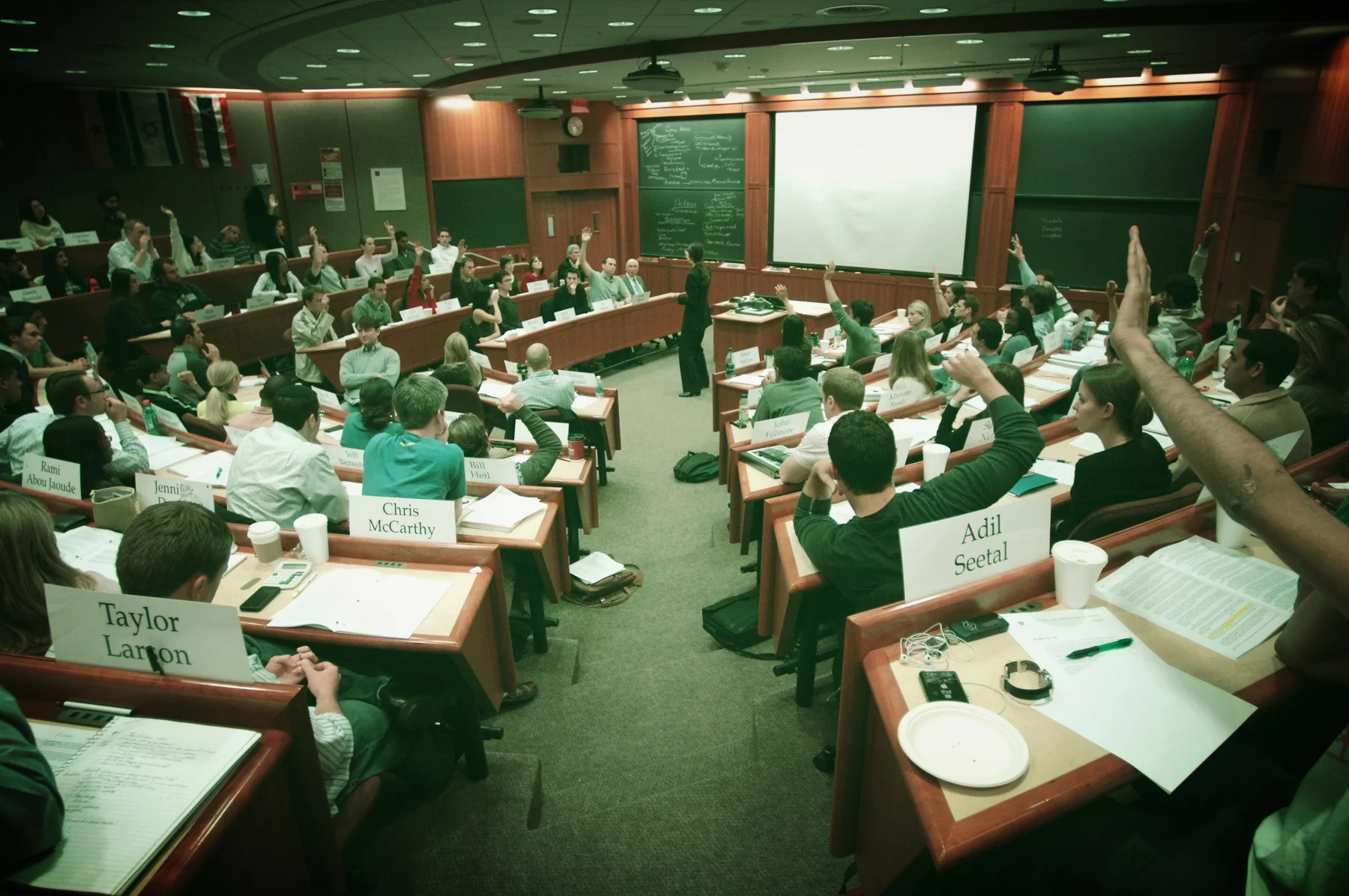The Graduate Management Admission Council (GMAC) has revised its exam, the most significant change since it was converted from paper to computer in 1997. The GMAT test will be cut by nearly an hour, with no writing required and all questions being multiple choice.
4 Trends Changing the MBA Application Over the Last Decade
Fewer and shorter essays, increased gender equality, and the popularity of the GRE testing (instead of the GMAT) are just a few of the developments in MBA admissions that might be informative for today's applicants. The types of MBA applicants schools are looking for and what makes them stand out have undergone significant changes. In this blog post we talk about how business school applications have changed over the past ten years and how these patterns affect the way you should approach your MBA application today.
Should You Take the GMAT or GRE Again?
What is a decent GMAT score, and should you retake it? Have you taken the GMAT or GRE at least once but are unsure whether your score is competitive enough for top MBA schools? The solution, however, is not as simple. It totally depends on the school and the candidate. If you come from an overrepresented application pool a better GMAT score may be all you need to stand out from the crowd. However, if you're on the verge, consider the following five questions in this blog post.
GMAT Adds Online Analytical Writing Assessment
What's Up with the Bonus Sections of the GMAT?
One More Time
Skipping the GMAT
Using the GRE to Avoid the GMAT
Is the GRE Party Over?
To GMAT or GRE? That is the Question.
How Important is the Integrated Reasoning Section of the GMAT
This is the time of year when many b-school hopefuls are taking the GMAT test in anticipation of nailing down a great score before application season begins in earnest.
After all, your score will help determine where you will be a competitive applicant and can also help you narrow down your school selections. It is essentially everyone's jumping off point in the application process, and one that gets most people feeling anxious. A common point of stress is often over which sections of the GMAT are most important.
Can I get into Harvard Business School with a 650 GMAT?
5 Tips for Applying to MIT Sloan
MIT Sloan is one of "those" schools - the ones that seem to slip into the nooks and crannies of the admissions process.
People don't talk about Sloan as much as its elite counterparts. Nobody immediately thinks about it in terms of being a top 5 program until you start digging and realize, wow, this program is insanely good. Most importantly, because of its unique end-of-October deadline and equally unique two-round admissions process, we would wager that application quality on Sloan apps is far lower than on other top programs (which is a *massive* problem if you want to be admitted there). Candidates often don't even start on their Sloan apps until after the October 3-16 gauntlet of deadlines and then they race to finish because they fear waiting until the "last" round. Indeed, since today is October 4th, it's something of a "last call" for Sloan interest. If you want to be serious about getting into MIT, you had better get started - and that includes bringing on a consultant.
Why I Created the Business School Selector
As an MBA admissions consultant, I have worked with a number of clients over the past 5 years. Invariably, the most common question I receive is "What are my chances of getting in?" Answering this question qualitatively requires years of admissions consulting experience with dozens and dozens of clients. Doing the question justice and providing the client with meaning insight requires several hours of examination. Even then, as the applicant matures and the application process begins, the applicant's "chances" can change remarkably.
However, there has to be some way of getting into the analytics of how MBA admissions committees view their applicant pool. I mean, Wharton is not going to take an applicant with a 480 GMAT, there is just no way. There has to be a range, cut-offs and some way to statistically examine applicant pools.
I searched high and low on the WWW for such a tool. I could find none in the GMAT/MBA space. What I found were mostly models that analyzed a few criteria from an applicant's POV. That is, these models looked at things like:
- In what type of setting should the school reside? Urban, Suburban, Rural?
- What time of female or international representation should be present?
- What climate should the school reside in?
While these factors are important in the decision-making process, they do not necessarily view things from the admissions committee perspective.
With this in mind, I when out and created a model that analyzes an applicant's prospects of entering the top 25 U.S. business school programs from an admissions committee view. I developed this tool for Veritas Prep as part of my MBA admissions consulting responsibilities.
The explanation from the Veritas Prep website does a great job of explaining what function the tool serves:
"This tool was created to generate an optimal range of business schools for you. By "optimal," we mean that these are the highest-ranked schools to which you have a reasonable chance of getting accepted. While no model is perfect, especially in beta, you can use the range of schools at the bottom of this page as a way to start narrowing your choice of MBA programs."
"Please don’t take the model too seriously. Since it only utilizes a subset of data, it cannot be considered a comprehensive tool for all situations and applicant profiles. The admissions process is highly subjective, and no one model can serve as an "oracle" or "magic eight ball.""
Click here to access the Veritas Prep Business School Selector.
Tougher Standards for Foreign Born MBA Applicants?
A significant number of my clients are from India (non-US citizen). In my consulting conversations with them, the one thing I bring up with them is their status as an over-represented applicant group. That is, there are a lot of applicants applying from India, probably more so than any other group. Applicants to business school are not necessarily going to be compared against the whole pool but rather a subset. Additionally, a majority of my clients are from the IT consulting and operations arena within India, further reducing their opportunities to distinguish themselves from the pack. While you many never hear an adcom talking about this phenomena, any grade, GMAT, work or extracurricular activity not up to snuff is a dealbreaker. The Indian undergraduate institution is of particular importance to the adcoms as well.
How many hours should I prepare for the GMAT?
I used to be a Kaplan tutor and instructor. Now I occasionally tutor students individually. It’s been my experience that if your aptitude is “average+” and you want to score above a 700 you need about 30 hours of instruction and then about another 50-70 hours of studying on your own. This seems like a lot but to some of my students it has been a slam dunk way of scoring 700+ by studying close to 100+ hours.
Data from GMAT, the creators of the GMAT, bolster this positioning. 700+ scoring students study 114 hours according to GMAC themselves.
I would definitely start studying 3 months out. This means taking a class course or tutoring if you have the money. After the class is done I would recommend taking one practice CD test a week (Sunday Afternoons).
During the week, stay after work for 75 additional mins and take a verbal section or a math section on CD.
The class course should teach you how to approach each problem. The tests and CDs should teach you timing.
What do I consider to be the critical b-school admission factors?
I taught the GMAT for about 3 years. In that time, I had the pleasure of teaching over 250 students. Along the way, I also had the privilege of helping a select few craft their admissions packages. Based on my experience and in order of importance, I present the following 8 factors I consider critical to getting into a top b-school:
- GMAT Score
- Application Essays
- Work Experience
- GPA
- Extracurricular Activities
- Recommendations
- Interviews
- Applicant Submission Round


















